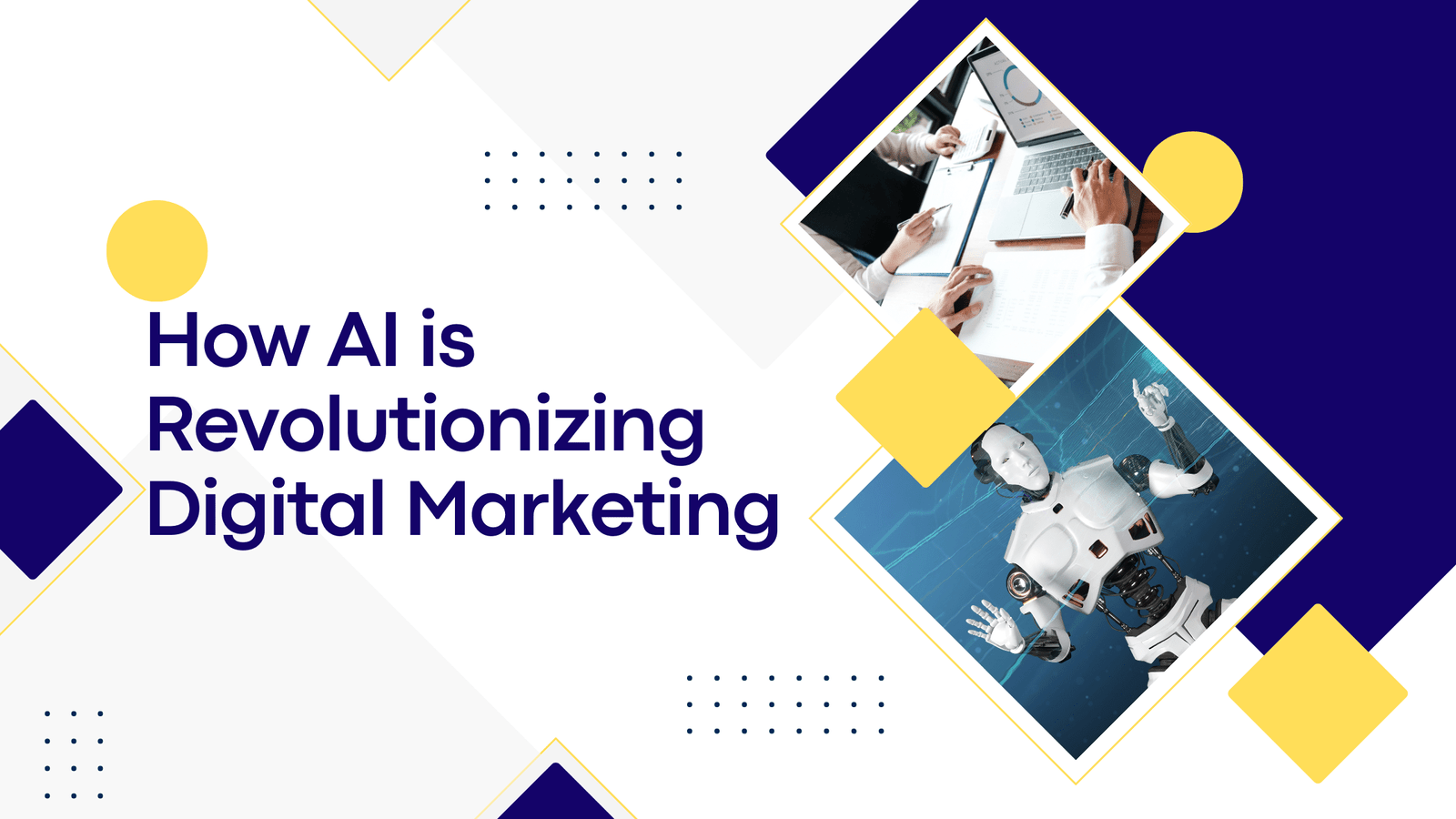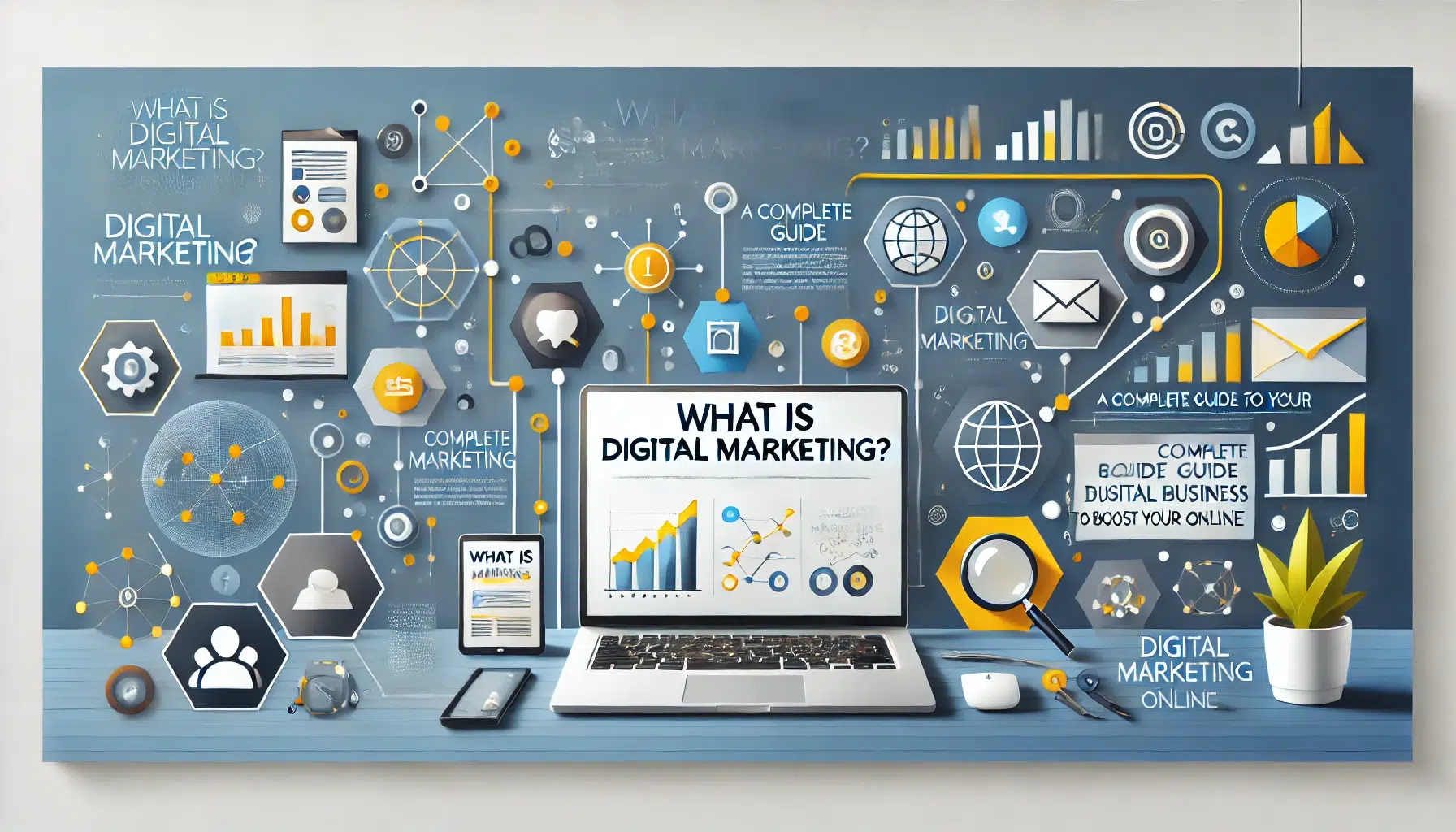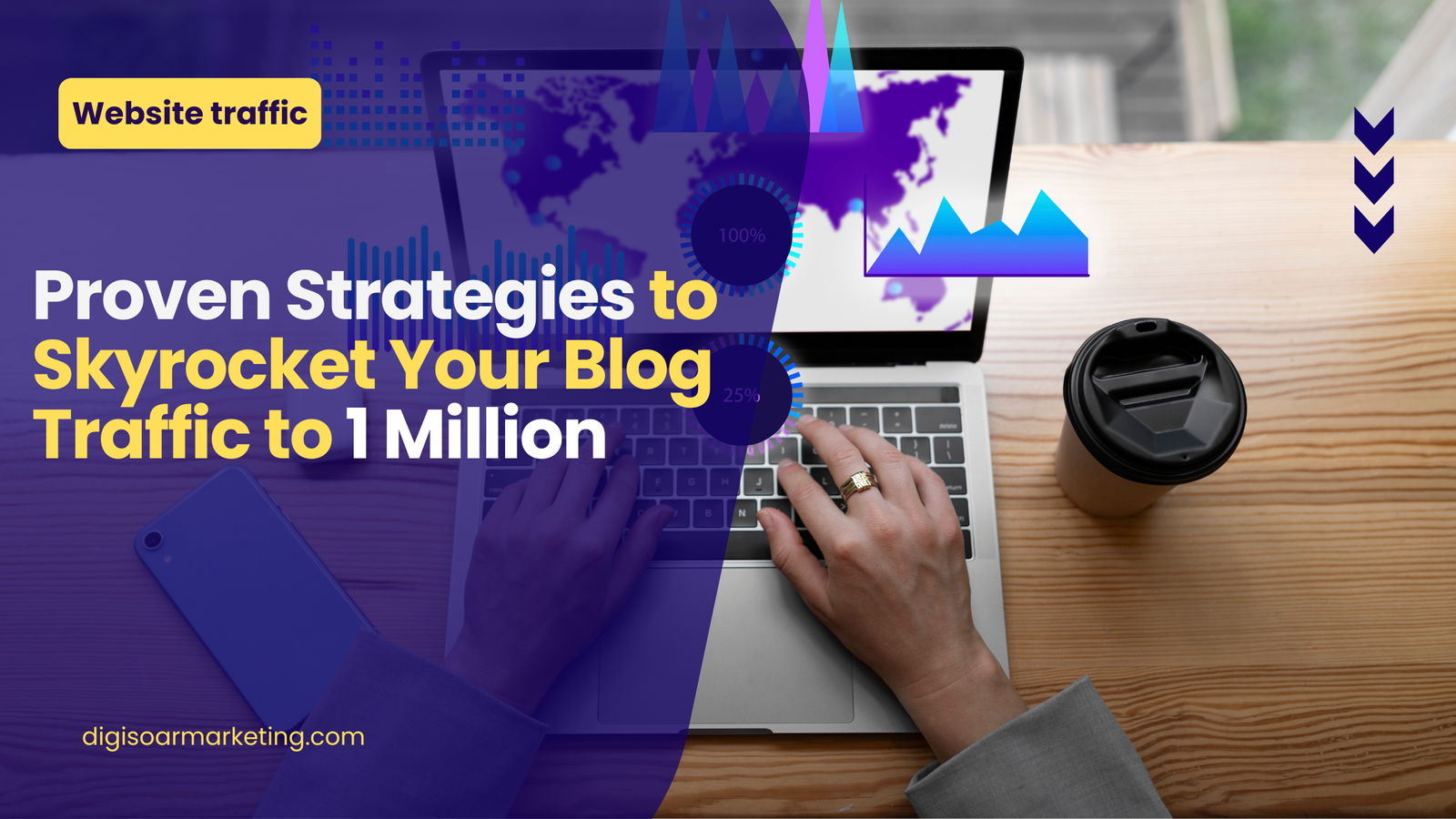Introduction
Staying ahead of the curve is crucial in the ever-evolving digital marketing landscape. Artificial Intelligence (AI) has emerged as a game-changer, offering unprecedented opportunities for businesses to connect with their audience more effectively. This blog will explore how AI is revolutionizing digital marketing, providing insights, strategies, and real-world examples to help you harness its potential.
1. The Rise of AI in Digital Marketing
"AI is not just a tool; it's a new way of thinking about how we interact with our customers." – John Smith, Marketing Expert
The integration of AI in digital marketing is no longer a futuristic concept; it's a present-day reality. AI technologies such as machine learning, natural language processing, and predictive analytics are transforming the way businesses approach marketing. By leveraging AI, companies can:
Gain deeper insights into customer behavior:
AI processes vast amounts of data at unprecedented speeds, uncovering patterns and trends that humans might miss. This enables businesses to understand their customers on a more granular level.
Personalize marketing efforts:
AI allows for the creation of highly personalized marketing campaigns that resonate with individual customers, increasing engagement and conversion rates.
Optimize campaigns in real-time:
With AI, marketers can continuously monitor and adjust their campaigns based on real-time data, ensuring maximum effectiveness and efficiency.
2. Key Benefits of AI for Digital Marketers
Enhanced Customer Insights:
- Rapid data analysis: AI can analyze massive datasets quickly, providing actionable insights that help marketers understand customer preferences and behavior.
- Identifying trends: By recognizing patterns in customer data, AI helps predict future behaviors and trends, allowing businesses to stay ahead of the curve.
Personalized Customer Experiences:
- Tailored interactions: AI enables the creation of highly customized marketing messages that cater to the unique preferences and needs of each customer, leading to increased satisfaction and loyalty.
- Dynamic content delivery: AI can adjust content in real-time based on user interactions, ensuring that customers receive the most relevant information at the right time.
Improved ROI through Predictive Analytics:
- Forecasting customer behavior: AI-driven predictive analytics can forecast customer actions, helping businesses make informed decisions about product launches, marketing strategies, and more.
- Optimizing resource allocation: By predicting which marketing tactics will yield the best results, AI helps allocate resources more efficiently, maximizing ROI.
Efficient Marketing Automation:
- Streamlining tasks: AI automates repetitive tasks such as email marketing, social media posting, and ad management, freeing up time for marketers to focus on strategic initiatives.
- Consistent performance: Automation ensures that marketing activities are carried out consistently and without human error, enhancing overall efficiency.
Example:
Using AI, an e-commerce platform can analyze purchase history and browsing behavior to recommend products tailored to each customer’s preferences, resulting in higher conversion rates and customer satisfaction.
3. AI-Powered Tools Transforming Digital Marketing
Chatbots and Virtual Assistants:
- 24/7 customer support: AI-powered chatbots provide round-the-clock assistance to customers, answering queries, resolving issues, and guiding them through the purchase process.
- Enhanced user experience: These tools offer instant responses and personalized interactions, improving customer satisfaction and engagement.
AI-Driven Content Creation:
- Content generation at scale: AI tools can produce high-quality content quickly and efficiently, helping marketers keep up with the demand for fresh, relevant material.
- Content optimization: AI analyzes performance data to refine and optimize content, ensuring it resonates with the target audience.
Programmatic Advertising:
- Automated ad buying: AI automates the ad buying process, using data to purchase ad space that will reach the most relevant audience segments.
- Real-time adjustments: AI continuously monitors and adjusts ad campaigns based on performance data, maximizing impact and reducing wasted spend.
Sentiment Analysis Tools:
- Understanding public opinion: AI-powered sentiment analysis tools scan social media, forums, and review sites to gauge public sentiment about a brand or product.
- Informing strategy: Insights from sentiment analysis help marketers adjust their strategies to better align with customer expectations and address any concerns.
Example:
Coca-Cola uses AI to enhance its social media strategy by employing sentiment analysis tools to monitor and respond to customer feedback in real-time. This allows the brand to maintain a positive image and engage with customers more effectively.
4. Case Study: Netflix's AI-Driven Personalization
How Netflix Uses AI to Personalize User Experience
Netflix is a prime example of how AI can be leveraged for personalization at scale. The streaming giant uses AI algorithms to analyze viewing habits, search queries, and user interactions. This data is then used to recommend content tailored to individual preferences, resulting in a highly personalized user experience that keeps viewers engaged and subscribed.
"Our algorithms are designed to learn what you like to watch and recommend content that suits your unique taste." – Netflix Data Scientist
Expanded Explanation:
- Analyzing user data: Netflix’s AI systems continuously collect and analyze data on user interactions, including what shows are watched, how they are rated, and even the time of day content is viewed.
- Content recommendation: Based on this analysis, Netflix’s AI can suggest shows and movies that align with the user’s tastes, enhancing the overall viewing experience and reducing churn.
5. How to Implement AI in Your Digital Marketing Strategy
Assess Your Needs and Goals:
- Identify opportunities: Determine where AI can add the most value in your marketing efforts, such as customer service, content creation, or ad targeting.
- Set clear objectives: Define what you hope to achieve with AI, whether it’s improving customer engagement, increasing conversion rates, or enhancing operational efficiency.
Choose the Right AI Tools:
- Evaluate options: Research and select AI tools that fit your specific needs and budget. Look for features that align with your marketing goals.
- Integration capabilities: Ensure the chosen tools can integrate seamlessly with your existing systems and platforms.
Train Your Team:
- Skill development: Provide comprehensive training for your team on how to use AI tools effectively. This includes understanding the technology and how to interpret AI-driven insights.
- Continuous learning: Encourage ongoing education to keep up with AI advancements and emerging best practices.
Start Small and Scale:
- Pilot projects: Begin with small-scale projects to test the effectiveness of AI in your marketing efforts. Use these pilots to gather data and refine your approach.
- Gradual expansion: As you gain confidence and see positive results, gradually expand AI integration across other areas of your marketing strategy.
Example:
A small online retailer can start by using AI-driven email marketing tools to personalize email campaigns based on customer purchase history and behavior. As the retailer sees positive results, they can expand AI integration into other areas such as social media marketing and inventory management.
6. Future Trends of AI in Digital Marketing
Hyper-Personalization:
- Real-time customization: AI will enable marketers to deliver personalized messages in real-time, adapting content based on individual user behavior and preferences.
- Increased engagement: By providing highly relevant and timely content, hyper-personalization will drive higher levels of customer engagement and satisfaction.
Voice Search Optimization:
- Adapting to new search behaviors: As more consumers use voice-activated devices like smart speakers and virtual assistants, optimizing content for voice search will become essential.
- SEO implications: Voice search often involves more natural language queries, requiring adjustments in SEO strategies to capture these search terms effectively.
AI-Driven Video Marketing:
- Dynamic content creation: AI will enable the creation of video ads that change based on viewer interactions, preferences, and feedback, making them more engaging and effective.
- Enhanced storytelling: AI can analyze viewer data to craft compelling narratives that resonate with specific audience segments, increasing the impact of video marketing campaigns.
Enhanced Data Privacy Measures:
- Balancing personalization with privacy: As data privacy concerns grow, AI will play a crucial role in developing solutions that protect user data while delivering personalized experiences.
- Compliance with regulations: AI can help ensure that marketing practices comply with data protection regulations, reducing the risk of legal issues.
Example:
AI can create dynamic video ads that change based on viewer interactions and preferences, leading to higher engagement rates compared to static ads.
7. Conclusion
AI is not just a trend; it’s a fundamental shift in how digital marketing is conducted. By embracing AI, businesses can achieve greater efficiency, personalization, and customer satisfaction. As technology continues to evolve, those who leverage AI effectively will stay ahead of the competition and drive long-term success.





For the reason that the admin of this site is working, no uncertainty very quickly it will be renowned, due to its quality contents.